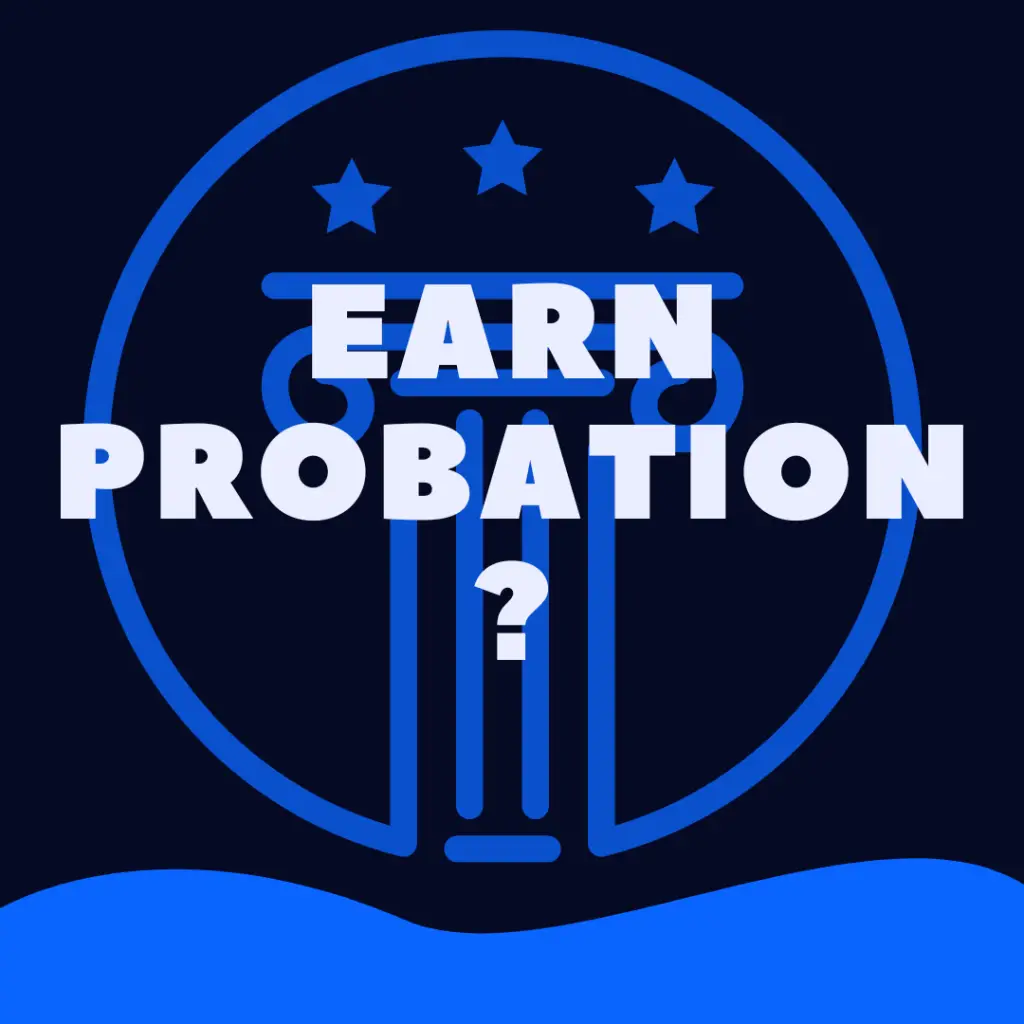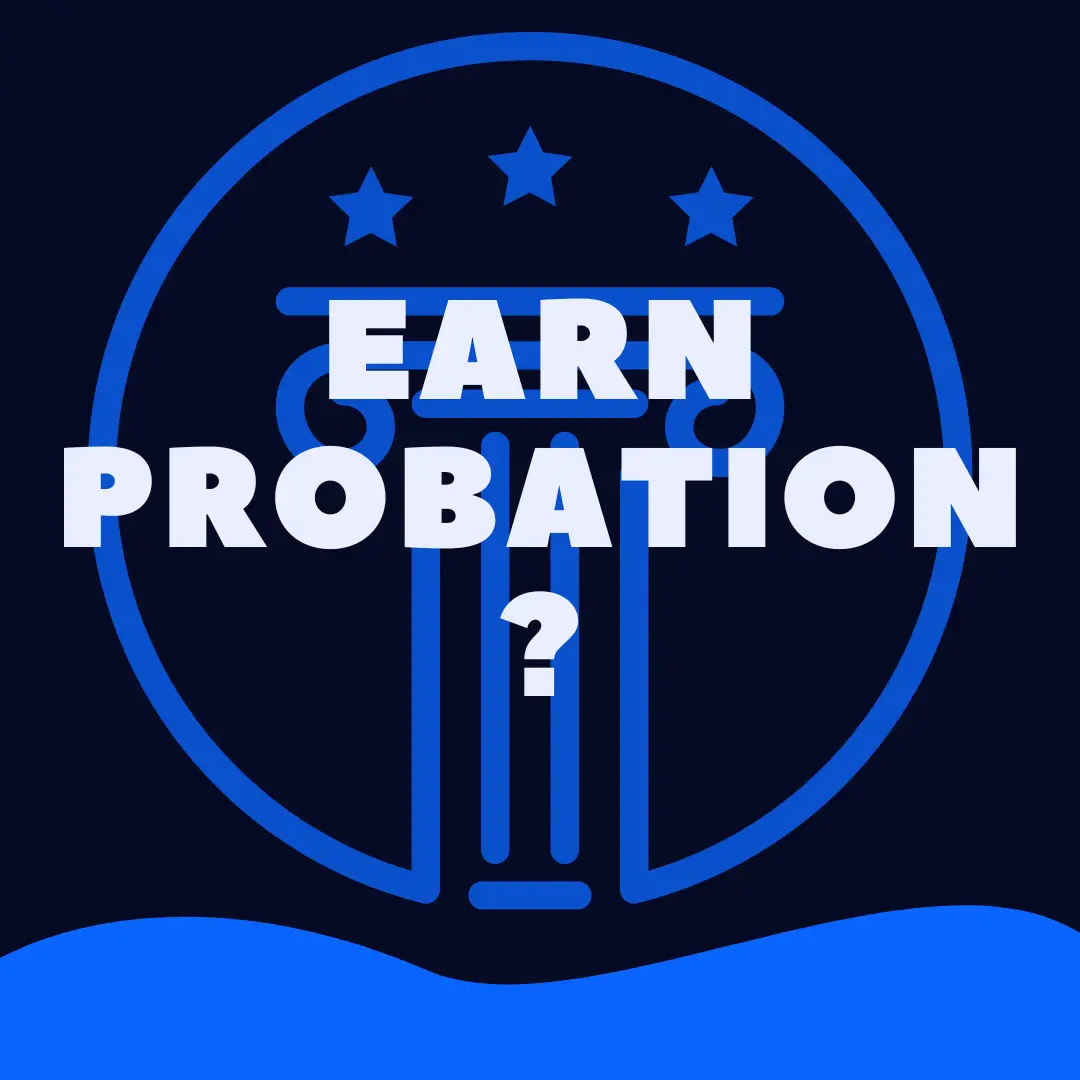While probation might be out of reach due to the severity of the criminal charge, here’s a list of things that you can do after the incident to try and earn probation.
How To Get Probation Instead Of Jail (Explained)
Disclaimer
The contents of this web page are for informational purposes only, and nothing you read is intended to be legal advice. Please review our disclaimer about law/legal-related information on this website before taking action based upon anything you read or see.
Introduction To Sentencing
To understand how a person might avoid jail with probation, a potential defendant needs to understand the sentencing process and hearing.
While sentencing can take just a few minutes, it is actually a complex hearing.
In making the punishment determination, the court will consider many factors, including:
- the severity of the crime
- the defendant’s criminal history
- the dates and kinds of previous offenses
- successful completion of previous sentence(s)/probation
- the defendant’s behavior during the pendency of the current case
- the defendant’s words at sentencing (acceptance of responsibility/legitimate remorse)
- committing new crimes while waiting for trial
- other pending cases
- age
- employment status
- education
- family/children
- support network
- addiction
- alternative disposition programs
- statutory/mandatory sentences
- whether probation is even an option
- would community service be better
- the position of the prosecutor
- the position of the defendant and his lawyer
- the agreements between the parties (joint recommendations)
- what the victim wants
- what the victim’s family wants
- justice for the victim
- justice for the community
- the judge’s own conscience
The sentencing hearing generally goes like this:
- Entry of Plea: If no plea has yet been entered, the court will first take the defendant’s plea of guilt or no contest. If a plea has been delivered via jury or bench trial, this part is not necessary. The plea hearing can also be separate from the sentencing hearing.
- Recitation of any agreements between the parties: Sometimes the prosecution and defense negotiate their way to an agreement. This can involve a jointly recommended sentence, in exchange for the prosecution dismissing some other charges or forgoing other charges. Each side gets something they want; the defendant gets a guaranteed sentence on a limited number of charges and the prosecution gets a guaranteed conviction without having to spend any more taxpayer dollars.
- Prosecution’s Presentation: The prosecution will lay out the facts that were alleged to have occurred. This happens without testimony or witnesses. He’ll just say what his witnesses would have presented. This is to give the court a general understanding of what occurred, so the judge can weigh the factors listed above.
- Defendant’s Presentation: The defense will be able to add in facts that the prosecution did not recite that are relevant to what happened. The defense will also provide the court with other information, such as an explanation for why it happened (addiction, untreated mental illness, bad decisions). This is also where the defense can tell the court all the reasons it should follow the negotiations, or to order probation instead of jail. This is where the existence of family, children in need of support, employment, school, treatment, etc come into play.
- Defendant’s Turn: The defendant is given a chance to speak on his own behalf. While many attorneys tell their clients to say nothing (as inevitably they undo the defense attorney’s good work), the defendant has the right to speak to the court on his own behalf.
- Victim’s Turn: The court will give the victim a chance to speak to the court, or will review any written statements provided by the victim.
- Pronouncement of Sentence: This is where the judge explains (if he wants) the sentence and why he decided it that way. He might lecture the defendant for a while about his choices.
There are some aspects of sentencing that the defendant can work on to improve, and others that he has no control of.
Preparing The Best Sentencing Presentation Possible
Hire Private Retained Counsel
If probation is very important to the defendant, it is important that the defendant consider hiring private retained criminal defense counsel.
While court appointed lawyers are skilled, they are over-burdened.
They do not have time to spend hours getting ready for sentencing for one client.
In a given day, they might be called to appear with 5-10 clients for sentencing.
The retained lawyer has a lot more time to consider the case, work the case, and prepare for the hearing.
Defend The Case Aggressively
An aggressive defense can help produce a probation recommendation.
An offer of probation is most likely earned from the prosecutor when the prosecutor starts to see reasons to want to be done with the case.
This can come in many forms.
For example, if an open and shut case starts to look weak because the witnesses are shown to be inconsistent, the prosecutor will start looking for an easy conviction rather than a trial that makes him look bad.
If the prosecutor starts to doubt that he can win at trial, he will consider a probation offer.
If the prosecutor has too much work to do to respond to all the work that is being created for him, he will consider a probation offer.
This is where a private retained lawyer can make a difference.
He may have no other cases to focus on but this one, while a court appointed lawyer could have hundreds.
Be Someone Worth Saving
Judges usually have to freedom to follow negotiations or to order the sentence they think is appropriate.
Think of probation as a gift.
To earn probation, a defendant should try to be a person worthy of that gift.
Maybe the defendant made bad choices to end up there.
But during the pendency of the case (anywhere from a few months to years), the defendant has a lot of time to work on becoming a person worthy of a gift.
At sentencing, the defendant’s lawyer wants to be able to tell the court all about his amazing client.
How his client showed up to every court appearance on time, clean, sober, and dressed appropriately.
How his client used his time to get a job and earn his employer’s trust and support.
How his client enrolled at the local college to learn a trade and is lining up his apprenticeship.
How his client spent his free time with his children.
How his client voluntarily sought treatment for substance issues or mental health issues.
How his client walked to work both ways every day even though his car was impounded.
How his client committed to something and didn’t give up.
How his client was clean during the pendency of the case.
How his client utilized the support of his family and friends.
How the community will be the better for the defendant to be on probation rather than jail.
How his family and children will be the better for probation.
The defendant’s lawyer can make arrangements for the people who are associated with all of these accomplishment to be present in the courtroom so the judge can see that they exist, and that they truly do support the defendant.
The defendant can also prepare for his part in the presentation. He can stand up and speak from the heart, express his genuine remorse, accept that what he did was wrong, and tell the judge about his plans to change his life.
There’s no one way to show the court that the defendant is a person worth probation.
In The End
You and your lawyers may do everything you can to avoid jail, and still fail to get probation.
After all, the severity of the crime and the criminal history of the defendant are still major factors in the determination.
The judge may not have a choice in the sentence, as some crimes come with mandatory minimum sentences or take probation off the table.
If a defendant has questions about whether probation is possible, even if the case has not yet even been filed, a consultation with an experienced criminal defense attorney who practices in the court where the case will be filed is the next step.
Wrap Up
Want to learn more about your criminal justice system?
Browse our free legal library guides for more information.
You might also like:
- How Do Defense Attorneys Sleep At Night?
- Is It Illegal To Change Lanes In An Intersection In Minnesota?
- Arraignment vs Initial Appearance (The Difference)
- Can You Go To Jail At An Arraignment?
- How To Get Probation Instead of Jail
- Can You Hire a Lawyer From Another City?
- Can You Tell Your Lawyer You Killed Someone?
- When Does a Conviction Start?
- Can I Fire My Lawyer and Get My Money Back?
- Can I Get Into Law School With a 3.0 GPA?


